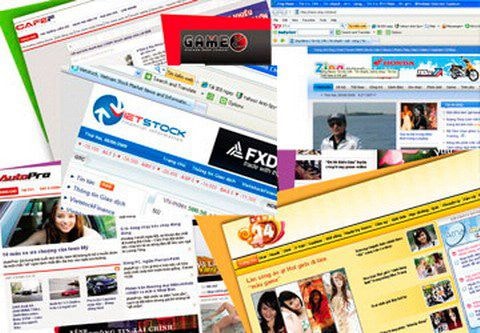Expert: The concept of "General news website" should be abolished
The existence of the concept of “general electronic information site” in the Press Law can be seen as a form of encouragement for copyright infringement. Therefore, this concept should be removed from the Law.
 |
| General news websites are not allowed to produce their own content, so they often have to take content from other newspapers, which can easily violate press copyright. Illustration: Source: Internet. |
At the expert consultation conference on the Press Law project organized by the National Assembly's Committee for Culture, Education, Youth, Adolescents and Children (abbreviated as UBVHGDTNTN&ND) on the morning of July 10, 2015 in Hanoi, journalist Huu Tho, former Head of the Central Ideology and Culture Committee, once again worried about the problem of "copy-pasting and copy-pasting journalism" in the context of the proliferation of electronic information aggregator websites.
Journalist Huu Tho analyzed: “Point 21, Article 4 of the draft Press Law stipulates that a “general electronic information page” is an electronic information page of an agency, organization, or enterprise related to press activities that provides general information based on verbatim and accurate citations of press sources and clearly states the name of the author or name of the press agency, and the time the information was posted or broadcast.
But in reality, there is a situation where many electronic information sites take a little bit of each article and then process it into their own articles. The reputable electronic newspapers are very heartbroken by this situation, because they have to spend a lot of effort to create news articles but then immediately after that, it is easy for others to cut and paste their content, which is difficult to handle.
"Copyright journalism and copy-pasting are a huge danger. The definition in the draft is not complete and does not include the prohibition of copy-pasting information content. The draft Press Law should provide more detailed regulations to control the copy-pasting behavior that is very common."
Sharing the same view, Mr. Le Quoc Vinh, Chairman of Le Media Company emphasized: “General electronic information sites are the units that infringe the most on press copyright. The reason is that general electronic information sites are encouraged by law to infringe copyright.”
To clarify the above statement, Mr. Le Quoc Vinh said: “The existence of the type of electronic information synthesis site in the draft Press Law is unreasonable. The condition for licensing this media is “permission to copy at least 5 press agencies”. If electronic information synthesis sites are allowed to “rehash” press works, it will only encourage more copyright infringement.
In fact, no newspaper (unless it is a very small newspaper) will allow a website to copy their articles, because doing so will indirectly reduce the readership or traffic to the newspaper itself. Even if the author is paid, the loss is still significant.
General electronic information sites are not allowed to create their own content, they will naturally rehash and copy articles from other press sites and cannot survive with only content from 5 newspapers. Because the number of general electronic information sites is too large, the ability to prevent copying is very difficult. If the law is tightened, general electronic information sites will have to create their own content, then it will violate the license.
With the above arguments, Mr. Le Quoc Vinh suggested: “It is necessary to consider eliminating the form of “general electronic information page” in the draft Press Law. Only press agencies are allowed to publish electronic information pages of a journalistic nature, whether they are electronic newspapers or specialized electronic pages. Other types of websites and electronic information channels belonging to organizations and individuals will be published and regulated according to the regulations of non-press media”.
According to Infonet
